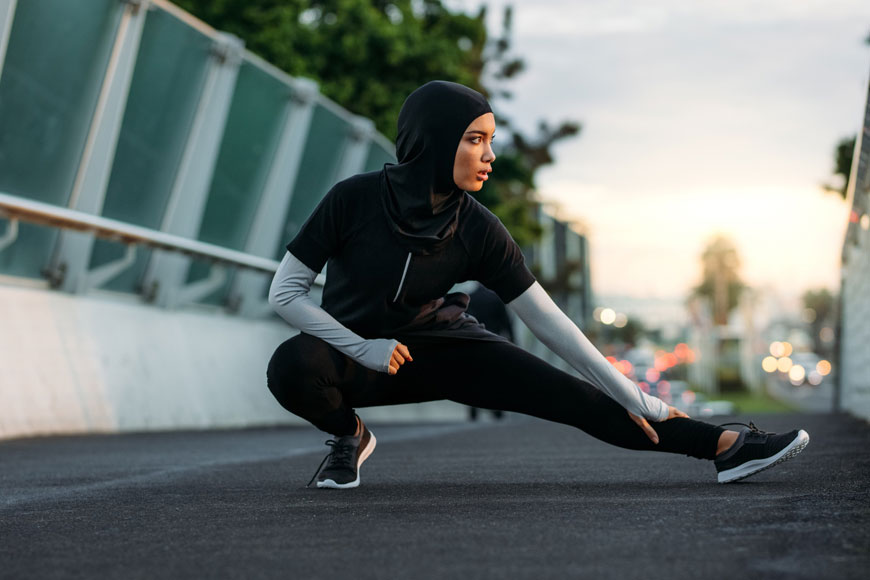By: Hina Amir
There is a major misconception regarding fasting in Ramadan. People don’t often consider how actually both of them go together. You can actually make the most of it in the best ways. Experts even suggest that exercise and fasting can go together in the best ways. And this is why you should be looking at ways in which you can make the most of this month, while trying to reach your weight goals. Not to fret, I am sharing some really effective tips that will allow you to maintain your workout plans while you fast during the holy month. Yes, working out and having the best of your fasting days is something you can work out well. For those who have been reluctant to exercise during Ramadan, the news is it’s completely healthy to work out while you fast. Exercising and fasting can go together without causing any harm to the body. There is also evidence which suggests that working out while fasting may actually keep our brain, neuro-motors and muscle fibres biologically young. When we exercise during fasting, it essentially forces our body to shed fat, as our body’s fat burning processes are controlled by a sympathetic nervous system, which in turn is activated by exercise and lack of food. So when you are able to create a strong mechanism for yourself which allows you to burn fats while fasting, it will definitely be helping in plenty of ways.
What are the best times for exercise?
Health experts suggest exercising after the Taraweeh prayers at night. It is a time when adequate meals and water is consumed to help during workout. One can consume juices and other liquids during the workout too. Some exercises can also be done after breaking the fast or just before Suhur. Exercising an hour before breaking the fast gives you the flexibility of eating within a short span. It rejuvenates the body immediately. If Muslims decide to work out directly before or after eating, they can push themselves and work out for a longer period of time.

What kind of exercise should be done?
High intensity exercises that throw the pulse rate to above 150 per minute should be avoided, particularly if you have yet to break the fast. Doing slow or moderate exercises are advised.
Experts suggest brisk walk, slow jogging, cycling, cross training and light machine exercises at the gym for Ramadan.
*If you have been sedentary and physically inactive
Start low; go slow. Don’t push yourself to work out really fast in one go.
Aim to stay physically active everyday- That is the key. You need to maintain a constant speed.
Break sedentary times as much as possible. It is important not to put extra pressure on yourself.
Incorporate more physical activities into your daily routines into your daily essential routines, e.g. walk instead of drive to the market
In the context of clocking in more steps and practising safe distancing as required, walking is appropriate. Do also avoid the peak periods, and walk a longer distance to avoid the crowded routes.
Take the stairs instead of the lift- this is pretty simple and basic but it will be yielding great results for you.
Perform your daily house chores to keep your living environment clean. These simple steps will be helping you plenty. You will see the difference in no time!
*If you have been physically active and exercising regularly
Continue with your current physical activity levels. It is not recommended to increase exercise frequency, intensity and duration when you are fasting. But when not fasting , you can look into ways in which you can keep your energy levels much the same way.
Aim to exercise for maintenance; not to push your limits or set new personal records. That is the key. Having a standard and stable flow of work. That allows you to maintain the level for the long run.
Always listen to your body and modify accordingly. Everyone does have their own levels of working . So listen to your body and work best for you.
Above all, eating a balanced diet and taking an adequate amount of liquids are necessary to help maintain a healthy exercise routine during the month. Intake of carbohydrates is encouraged during suhur which helps to stay energetic. You need that energy level to maintain high energy levels when you are working out. Taking a protein rich diet after breaking the fast helps the body to rejuvenate. So this is how you balance both ways. Which allows you to maintain a great way of maintaining your weight while working out in the best way. See results- its not that hard now is it !











